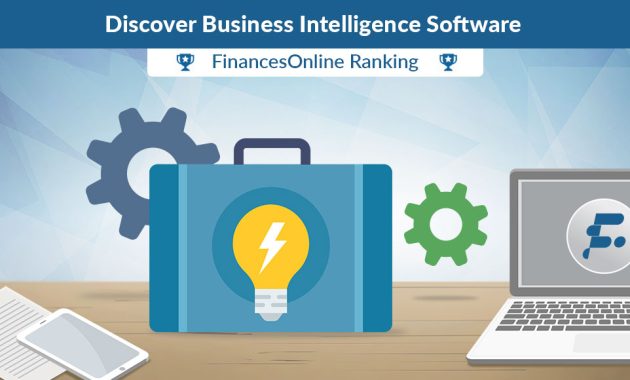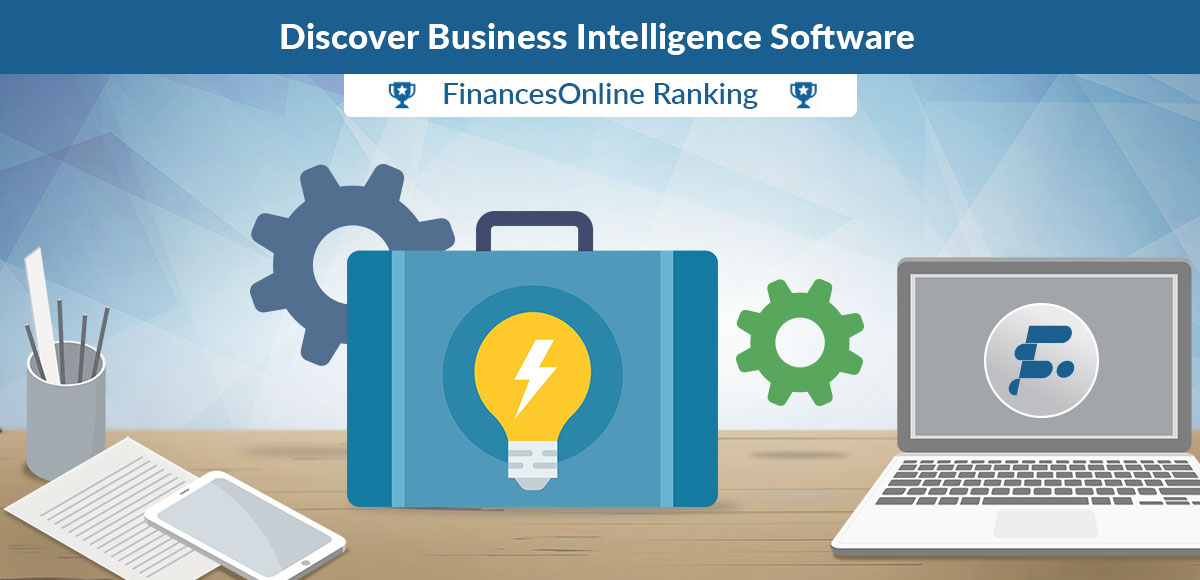
Business Intelligence Software for Smarter Decisions: Navigating the Data-Driven Landscape
In today’s fast-paced business environment, informed decision-making is no longer a luxury; it’s a necessity. Companies across all sectors are grappling with massive datasets, seeking to extract valuable insights that drive growth and efficiency. This is where Business Intelligence (BI) software steps in. This guide provides a comprehensive overview of Business Intelligence software, its benefits, how to choose the right solution, and its impact on smarter decisions.
The core function of Business Intelligence software is to transform raw data into actionable information. It empowers businesses to understand past performance, analyze current trends, and predict future outcomes. This ability is crucial for making smarter decisions, optimizing operations, and gaining a competitive edge. The evolution of Business Intelligence software has been remarkable, moving from complex, IT-driven systems to user-friendly, accessible platforms.
Understanding the Core Concepts of Business Intelligence
Business Intelligence encompasses the strategies and technologies used to analyze business data. The goal is to improve business decision-making. It involves gathering, storing, analyzing, and presenting data to provide insights. Several key components make up a typical Business Intelligence system.
- Data Collection: Gathering data from various sources. These sources include databases, spreadsheets, and cloud services.
- Data Warehousing: Storing the collected data in a centralized repository. This repository is optimized for analysis.
- Data Analysis: Using various techniques to analyze the data. Techniques include data mining and statistical analysis.
- Data Visualization: Presenting the analyzed data in an easy-to-understand format. Formats can include charts and dashboards.
These components work together to turn raw data into actionable intelligence. The effective use of Business Intelligence software is essential for any organization. It enables them to make smarter decisions based on data.
The Benefits of Implementing Business Intelligence Software
Implementing Business Intelligence software offers a multitude of benefits across various business functions. These benefits contribute directly to more informed decision-making and improved business performance.
- Improved Decision-Making: BI provides real-time insights. These insights enable faster and more informed decisions.
- Enhanced Efficiency: Automate reporting and analysis tasks. This frees up valuable time for strategic initiatives.
- Increased Revenue: Identify market trends and customer preferences. Then, capitalize on opportunities for growth.
- Cost Reduction: Optimize operational processes. This helps to reduce waste and improve resource allocation.
- Competitive Advantage: Gain a deeper understanding of the market. This understanding helps in staying ahead of competitors.
These advantages demonstrate the power of Business Intelligence software. It is a vital tool for any business seeking to thrive in today’s data-driven world.
Key Features of Business Intelligence Software
The specific features of Business Intelligence software can vary. Yet, several core functionalities are essential for effective data analysis and decision-making. These features are the building blocks of a robust BI solution.
- Data Integration: The ability to connect to various data sources. This includes databases and cloud services.
- Data Visualization: Creating charts, graphs, and dashboards. These tools help in understanding complex data.
- Reporting: Generating custom reports. These reports provide insights into key performance indicators (KPIs).
- Data Mining: Discovering patterns and trends. This can be done through various data analysis techniques.
- Predictive Analytics: Forecasting future trends. This is based on historical data analysis.
- Mobile BI: Accessing data and insights. This can be done on mobile devices.
These features collectively empower businesses to analyze data. They can then make smarter decisions and achieve their business goals.
Selecting the Right Business Intelligence Software for Your Needs
Choosing the right Business Intelligence software is crucial. The best choice depends on your specific business needs and goals. Several factors should be considered during the selection process.
- Business Requirements: Define your specific data analysis needs. Identify what insights you need to gain.
- Data Sources: Determine the data sources you need to connect to. Ensure the software supports them.
- Scalability: Choose a solution that can grow with your business. Consider future data volume and user needs.
- User Friendliness: Select software with an intuitive interface. This will make it easy for users to adopt.
- Cost: Evaluate the total cost of ownership. Consider both the initial investment and ongoing costs.
- Support and Training: Ensure that the vendor provides adequate support. Also, provide training to your users.
Careful consideration of these factors will help you select the Business Intelligence software that best suits your needs. This will also help in making smarter decisions.
Top Business Intelligence Software Solutions
Several leading Business Intelligence software solutions are available in the market. These solutions offer a range of features and capabilities. They cater to different business sizes and industries.
- Tableau: Known for its powerful data visualization capabilities. It is also user-friendly.
- Microsoft Power BI: A popular choice for its integration with Microsoft products. It is also known for its affordability.
- Qlik Sense: Offers a unique associative data model. It provides powerful data discovery capabilities.
- Looker: Focuses on data modeling and governance. It is a good choice for large enterprises.
- Sisense: Provides an end-to-end analytics platform. It is known for its ease of use and scalability.
Each of these solutions offers unique strengths. The best choice depends on your specific requirements.
Implementing Business Intelligence Software: A Step-by-Step Guide
Implementing Business Intelligence software effectively requires a structured approach. A well-planned implementation ensures a smooth transition and maximizes the benefits.
- Define Objectives: Clearly define your goals for implementing the software. Determine what insights you want to gain.
- Data Preparation: Prepare your data for analysis. Clean and transform the data to ensure accuracy.
- Software Installation and Configuration: Install and configure the software. Configure the necessary data connections.
- User Training: Train your users on how to use the software. Ensure they understand its features.
- Dashboard and Report Development: Develop dashboards and reports. Tailor them to your specific needs.
- Testing and Validation: Test the software. Validate the accuracy of the reports and dashboards.
- Deployment and Rollout: Deploy the software to your users. Roll it out in phases if necessary.
- Ongoing Monitoring and Optimization: Continuously monitor the software’s performance. Optimize it as needed.
Following these steps will help you implement Business Intelligence software successfully. This will enable you to make smarter decisions based on data.
The Impact of Business Intelligence Software on Decision-Making
Business Intelligence software has a profound impact on how businesses make decisions. It transforms the decision-making process. It also provides a data-driven approach.
- Data-Driven Insights: BI provides access to real-time data. This allows for informed insights.
- Improved Accuracy: Data-driven decisions are more accurate. They are based on facts.
- Faster Decision Cycles: BI enables faster decision-making. This is due to quick access to insights.
- Proactive Problem Solving: Identify potential issues. Then, take proactive steps to resolve them.
- Enhanced Collaboration: Facilitates data sharing and collaboration. This ensures everyone is on the same page.
The use of Business Intelligence software is essential for making smarter decisions. It leads to better business outcomes.
Business Intelligence Software and Data Security
Data security is a critical consideration when implementing Business Intelligence software. Protecting sensitive data is paramount. Businesses must implement robust security measures.
- Data Encryption: Encrypt data both in transit and at rest. This prevents unauthorized access.
- Access Controls: Implement strict access controls. This ensures only authorized users can access the data.
- Regular Audits: Conduct regular security audits. This helps identify and address vulnerabilities.
- Compliance: Ensure compliance with relevant data privacy regulations. This includes GDPR and CCPA.
- User Training: Train users on data security best practices. This reduces the risk of human error.
By prioritizing data security, businesses can protect their valuable data. This will also maintain the trust of their customers. This is all while using Business Intelligence software.
The Future of Business Intelligence Software
The future of Business Intelligence software is promising. The field is constantly evolving. Several key trends are shaping the future of BI.
- Artificial Intelligence (AI) and Machine Learning (ML): AI and ML are being integrated into BI. This automates data analysis and provides predictive insights.
- Cloud-Based BI: Cloud-based BI solutions are becoming more popular. They offer scalability and flexibility.
- Self-Service BI: Self-service BI tools are empowering business users. They can analyze data without IT support.
- Data Governance: Data governance is becoming increasingly important. It ensures data quality and compliance.
- Mobile BI: Mobile BI continues to grow. It allows users to access data on the go.
These trends are driving innovation in the field of Business Intelligence software. They are also helping businesses make smarter decisions.
Conclusion: Embracing Business Intelligence for a Data-Driven Future
Business Intelligence software is a powerful tool. It transforms data into actionable insights. This empowers businesses to make smarter decisions. By implementing BI, businesses can improve efficiency, increase revenue, and gain a competitive advantage. The future of BI is bright, with ongoing advancements in AI, cloud computing, and self-service analytics. Businesses that embrace BI will be well-positioned to thrive in the data-driven world. [See also: How to Choose the Right BI Tool]

